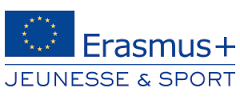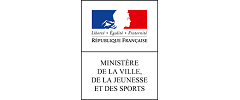EU Sustainable Development Strategy - stakeholder forum
WECF and LIFE organise 2 workshops and score well
28.04.2005 |Isabel Ripa

Prepared by Isabel Ripa (WECF Spain) with contributions from Ulrike Roehr (LIFE Germany)
29. April 2005
The Stakeholder Forum on Sustainable Development in the EU took place on April 14 and 15 2005 in Brussels, an event co-organised by the European Economic and Social Committee and the European Commission to explore the future path of sustainable development in the EU.
WECF was represented by Isabel Ripa (WECF Spain) and Ulrike Roehr from LIFE (Germany). Both were working together to promote awareness on the need to include gender mainstreaming. In total there were about 300 participants representing organised civil society, administration, industry and research.
For the discussion the Open Space of Technology was used (www.ourfuture.com/open.htm) to identify:
- current issues: evaluate how the present Strategy has developed, take account of positions organisations have taken in the Commission's consultation process on the Strategy, link with the L isbon Strategy;
- future challenges: e.g. what structural changes are needed, external dimension of the Strategy, how to ensure a more effective implementation; and
- creative solutions: e.g. how to inform, motivate and mobilise the various actors.
According to the Open Space methodology, Isabel Ripa and Ulrike Roehr suggested two workshops: one with the headline “Mainstreaming gender into the EU-SDS”, the second one on “Addressing all human needs”. Both were not the ones with most participants, but lead to really intensive and fruitful discussions.

In the first Workshop, Mainstreaming gender into the EU-SDS”, the participants discussed benefits from incorporating gender perspectives into the Sustainable Development Strategy (SDS). Results of our discussion included that the integration of a gender perspectives is an outstanding measure for inter-linkages between the three pillars of sustainability (this was heavily criticised as lacking in the morning discussions), that a more holistic approach will lead to more sustainable lifestyles, to more ‘just’ societies, and to a better quality of life. The participants also agreed in that looking from a gender perspective will open up new ways in which the issues will be dealt with (e.g. caring and precaution is in the center) and will raise new or transform values, e.g. justice, responsibility, respect for nature and life. In the end of the session the participants identified six suggestions for next steps;
- to strengthen the social component of strategic impact assessment,
- to pay particular attention to gender impacts of policies and programmes
- to setup monitoring/evaluation/reporting systems on the achievements of gender equality
- to explain if targets are not met and why they were not achieved
- to propose how to tackle in the future.
The second workshop also had an inclusive approach. The participants of the WECF workshop were brainstorming and discussing the different types of needs that we humans have, e.g.: a healthy environment, generation replacement, feeling safe, personal fulfilment, education, freedom, income, or feeling useful.
The participants also agreed that different groups and/or in different situations have different needs and that also some groups are more vulnerable, such as: children, elderly, unemployed, handicapped, migrants, single mothers or poor people. The participants conclude that the EU SDS shall have into account this diversity and work for the different groups of society and made four main recommendations:
- ensure that legislation address vulnerable groups;
- recognise the dependende of human beings from nature and natural resources,
- respond not only to EU interest but also taking into account other countries interests (e.g. on trade and agriculture issues)
- more coherence.
Full reports of these two workshops, as submitted to the audience, are to be found in the reports of the working sessions (see links below), working groups 3A and 4B, which can be downloaded.
At the end of the Open Space section of the conference the reports of all workshops were handed out to the participants who now were asked to rank the five most important ones. WECF and LIFE were quite pleased to find the gender mainstreaming issue ranked at 18 out of 39 – even though there were only very few gender sensible participants and even though Mrs. Margot Wallström in the morning discussion was not very supportive (she feared that the SDS would be overloaded if gender aspects were added).
The reports of the working sessions, the list of priority issues established by the participants of the Forum and the final programme have been made available on the website of the European Economic and Social Committee: http://www.esc.eu.int/sustainable_development/index_en.asp
Some background information: Public consultation for the review of the European Sustainable Development Strategy (30.07.2004 to 31.10.2004)
This public consultation was organised by the European Commission that received more than 100 answers to the long questionnaire and 692 responses to the online-questionnaire.
It is interesting to point out that while men submitted 351 replies, only 195 were sent by women. Most replies (57%) came from only four EU countries: Germany (15,2%), France (14,6%), United Kingdom (14,3%) and Belgium (12,9%). This gives us an idea of the many different views not being expressed.
The replies assessed the progress on sustainable development as not satisfactory and were asking for stronger co-ordination of sustainable development strategies at all levels (EU, national, regional, and local).
More information on the consultation process and the EU Sustainable Development Strategy:
English: http://www.esc.eu.int/sustainable_development/index_en.asp>
French: http://www.esc.eu.int/sustainable_development/index_fr.asp>
































